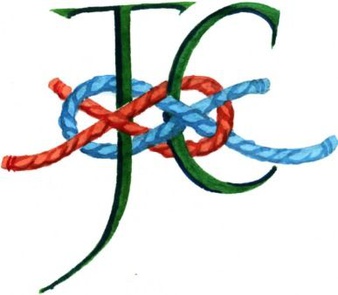East Kent Hospitals' Dementia Team
Information for patients, carers, visitors, and staff
This leaflet will guide you through the support that the Dementia Team offers patients and their carers / family in hospital. It will also direct you to other services that are available.
This leaflet includes:
An overview of what dementia is.
Details on the services the team offers during an inpatient stay in one of our hospitals.
Information to support carers of people living with dementia.
Information on directing patients and carers to community services.
What is dementia?
Dementia is an umbrella term for a range of progressive conditions that affect the brain.
Each type of dementia stops a person’s brain cells (neurones) working properly in specific areas, affecting their ability to remember, think, and speak. Doctors typically use the word ‘‘dementia’’ to describe common symptoms such as memory loss, confusion, and problems with speech and understanding that get worse over time.
There are many different types of dementia. But the most common types we see in our hospitals are Alzheimer’s disease, vascular dementia, Lewy body dementia, frontotemporal dementia, and mixed dementia. (dementiauk.org, 2022)
Further information about dementia can be found here:
What support can the Dementia Team give me and my family?
If you are admitted to one of our hospitals and referred to the dementia team, we will complete an assessment which will highlight the support you need. We will support the ward staff with resources and information to help you and your carers / family during your hospital stay.
On arrival, whether being admitted to hospital, coming to our Emergency Department, or visiting for an appointment, contact can be made with the Dementia Team as soon as possible. This may be from the ward staff, an alert system we use within the hospital, or your patient / carer can contact us directly.
Delirium and Dementia
During a hospital admission an individual living with dementia may present with a delirium. This may cause the presentation of somebody to alter, potentially causing them to be less mobile, off their food / drink, sleepier, increasingly agitated, and / or hallucinating. If these appear to be present then the medical teams will assess and treat for delirium. The team work with individuals living with a dementia who have delirium, are being diagnosed, or who have a probable diagnosis.
What tools does the ward use to help me and my family during my hospital stay?

Forget me not
During your hospital stay the Dementia Team ask the wards to consider and put in place the following.
In East Kent Hospitals we use the Forget Me Not logo across the inpatient wards.
If you and your next of kin agree, a small Forget Me Not flower is placed on the board above your bed space. This is a quick way of showing ward staff that you may have a formal diagnosis of dementia or memory concerns, and need more support.

This is me
This is me is a simple leaflet for anyone having professional care, who is living with dementia or experiencing delirium or has other communication difficulties.
It gives professionals a greater understanding of you, what you like, dislike, hobbies, past history. It helps us make sure that we are meeting your needs as best we can during your stay in hospital.
The leaflet can be used in any setting, at home, in hospital, in respite care, or in a care home.
You can ask a member of staff for a copy of the leaflet, or download a copy yourself from the Alzheimer’s Society web site.

Blue ribbon symbol
The Blue ribbon scheme covers all adult inpatients. It aims to stop transfers between wards for vulnerable patients who have been identified as not appropriate to move. All patients with confirmed dementia, delirium, a learning disability or autism, or on an end-of-life care plan, should have the fewest ward moves possible.
A blue ribbon symbol will be displayed next to your name on your whiteboard, so that staff on duty know you should not be moved.

John’s Campaign
The Trust has signed up to be part of John’s Campaign. This campaign supports the right of people with dementia to be supported by their family and carers, and to have flexible visiting hours within the hospital setting, supported and negotiated with the ward managers.
Activity boxes
The Dementia Team also supply the wards with activity boxes. These may include fiddle blankets, puzzles, colouring, and newspapers / magazines. Please ask a member of ward staff for one of these boxes.
If you have any questions or want further information on any of the tools listed above, please speak to a member of ward staff or ask to speak to the Dementia Team.
Further information
Carers’ Packs are available for your next of kin and carers. These have a lot of information in them to support carers during a hospital stay and in the community, signposting them to different services. Please ask a member of ward staff or the Dementia Team for a Carers’ Pack.
Supporting your loved one. A hospital admission can be very overwhelming for a person living with dementia / delirium, or who has memory concerns. To help support you during this time, if possible we ask your next of kin / carer to bring in familiar things from home (such as copies of photographs, your own clothes, or items that comfort you).
Sensory aids such as hearing aids, glasses, or dentures. Please make sure these items are brought in to hospital with you.
What happens if I have not had a dementia diagnosis?
The Dementia Team do not formally assess and diagnose you with dementia in hospital. However, if you are concerned about your memory, please visit your GP when you return home.
If we identify concerns while you are in hospital, your medical team can raise a referral via the electronic discharge notification that is sent to your GP when you are discharged home from hospital. Your GP can then help you by referring you to your local memory clinic for further tests.
Contact details
Please do not hesitate to contact the Dementia Team during your hospital admission or appointment. Our services run between the hours of 9am and 5pm Monday to Friday. We welcome inquiries from inpatients as well as the general public (carers / relatives).